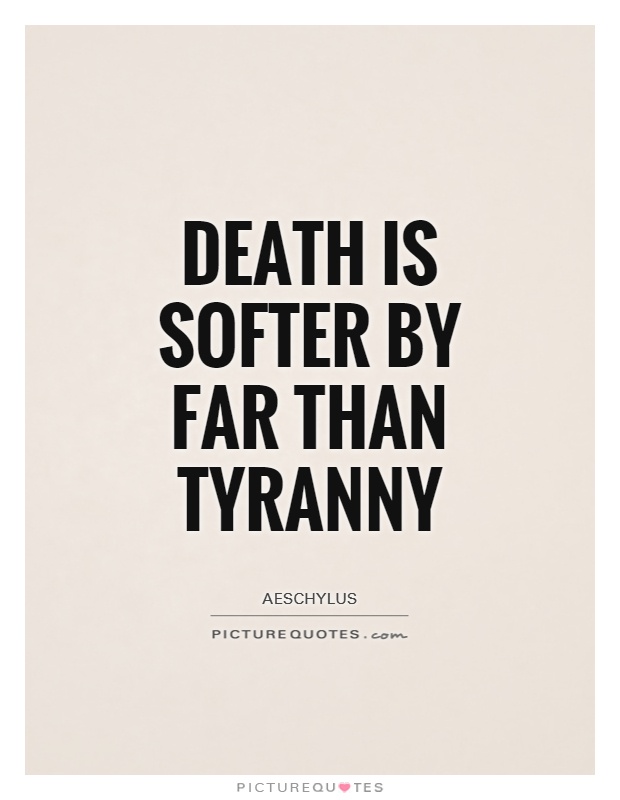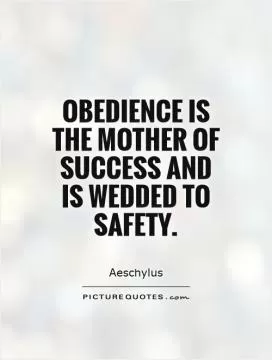Death is softer by far than tyranny

Death is softer by far than tyranny
In the context of Aeschylus, the quote "Death is softer by far than tyranny" holds a profound and timeless truth. Aeschylus, a Greek tragedian known for his exploration of themes such as justice, fate, and the power of the gods, often depicted the horrors of tyranny and the suffering it brings to individuals and society as a whole. In his plays, he frequently portrayed the consequences of unchecked power and the devastating effects it has on both the oppressors and the oppressed.The quote suggests that death, as the ultimate end of life, is a more merciful fate than living under the oppressive rule of a tyrant. While death may be feared and unknown, it is portrayed as a release from the suffering and injustice that tyranny brings. Aeschylus believed that the human spirit is resilient and can endure many hardships, but the crushing weight of tyranny can break even the strongest of souls.
In Aeschylus' play "The Persians," he explores the consequences of hubris and the downfall of the Persian Empire. The play serves as a cautionary tale about the dangers of excessive pride and the consequences of seeking to dominate others. The Persians, who were once a mighty and powerful empire, are brought low by their own arrogance and the wrath of the gods. Aeschylus shows that the pursuit of power and control ultimately leads to destruction and suffering.












 Friendship Quotes
Friendship Quotes Love Quotes
Love Quotes Life Quotes
Life Quotes Funny Quotes
Funny Quotes Motivational Quotes
Motivational Quotes Inspirational Quotes
Inspirational Quotes